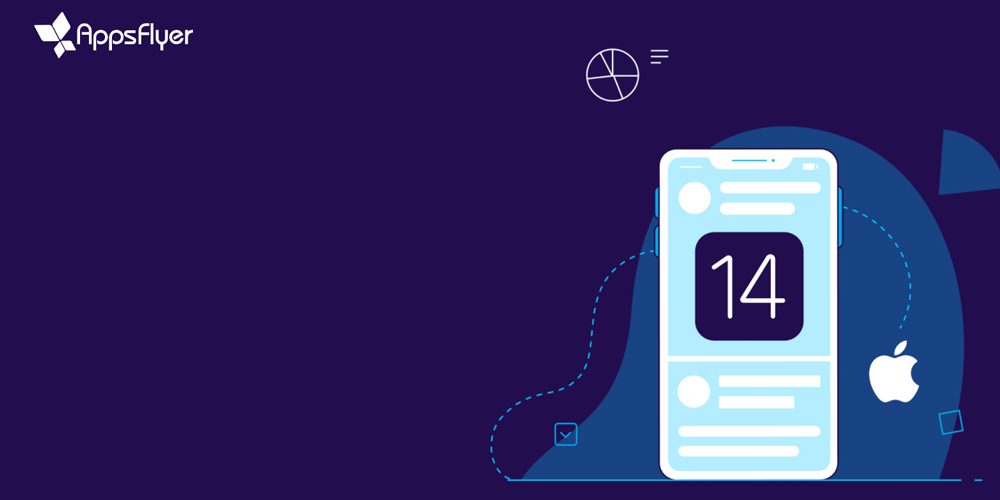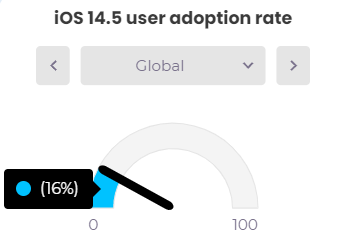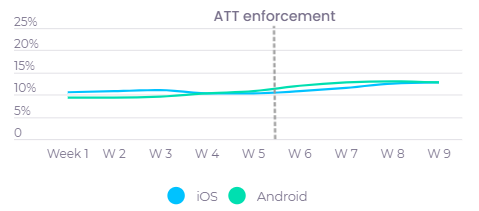Less than a quarter of all iOS games support the App Tracking Transparency (ATT) framework. It allows you to request permission from users to monitor their behavior.
AppsFlyer analysts came to such conclusions. The other day they updated the company’s dashboard (we are talking about data up to May 25, 2021), according to which on a weekly basis you can track the dynamics of iOS 14.5 penetration and related parameters.
Penetration rate and total ATT
The very level of OS penetration for all applications remains at the level of 16%. It seems that Apple is in no hurry to transfer users to it and gives developers time to adapt to changes.
Recall that one of the key innovations of iOS 14.5 is the need for each application that collects data from the audience to ask the user whether he is ready for information about him to be processed or not.
ATT is just the tool with which this request is generated. But, judging by the data published by AppsFlyer, not all game developers are in a hurry to integrate it. Only 22% of games have this solution implemented. And this figure has not changed in recent months.
This situation has developed despite the fact that since April 26, App Store moderators do not accept applications without a framework. From which it is easy to conclude that 78% of iOS games have not received major updates (at least requiring separate moderation) over the past month.
ATT in niches
The situation with ATT support strongly depends on the gaming niche. For example, among hypercausal products, support is only 17%. It is even lower for casual — 16%.
A completely different level of framework support for games designed not for the widest possible audience. 23% of midcore products have ATT. Hardcore games and projects in the social casino genre have this parameter even higher -29%.
All this may indicate at least a different attitude to the promotion of products from teams specializing in different niches. As if the authors of hyper-casual titles are less concerned about collecting data on user behavior.
At the same time, the level of ATT-consent in hypercausal games is one of the highest. On average, for all similar products that have integrated the framework, it reaches 48%. We are talking about the proportion of users who saw the request and agreed to give data about themselves.
For comparison, in general, it is 37% for games. The lowest level is at social casinos. They have an average of 29%. In all the remaining niches, it is at the level of 35%.
Dynamics of marketing expenses after the release of iOS 14.5
Among the other interesting things in the dashboard presented by AppsFlyer is the dynamics of marketing expenses after the release of iOS 14.5. According to the marketing platform, the share of advertising expenses for user engagement campaigns in the total budget has hardly changed (to be more precise, there have been no significant changes, and those that were, can easily be attributed to seasonality or a general trend to increase).
But there is a nuance. Significant fluctuations can be seen only if you look at the data broken down by region, platform and, of course, niche. For example, the share of advertising expenses on Android in the vertical of hyper-casual games increased after the release of iOS 14.5.
But if we talk about the entire gaming market as a whole, since the release of the new iOS, the share of spending on Android has increased by only 1.8 percentage points, and on iOS — by 2.4 percentage points. In other words, there was no overall significant trend.
You can get acquainted with the dashboard at this link.




